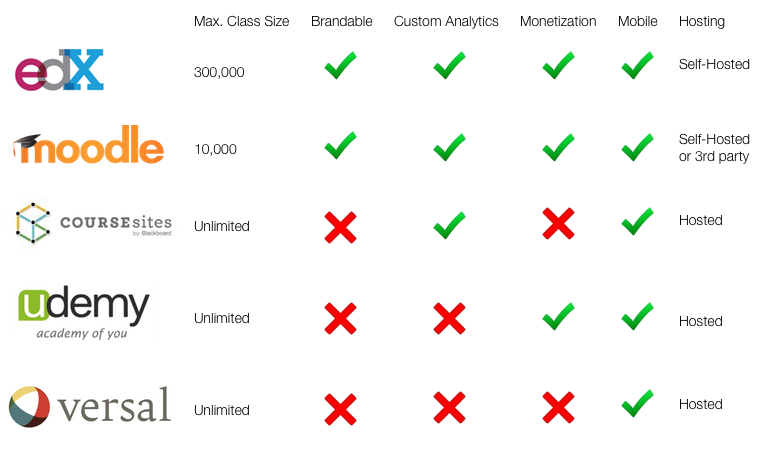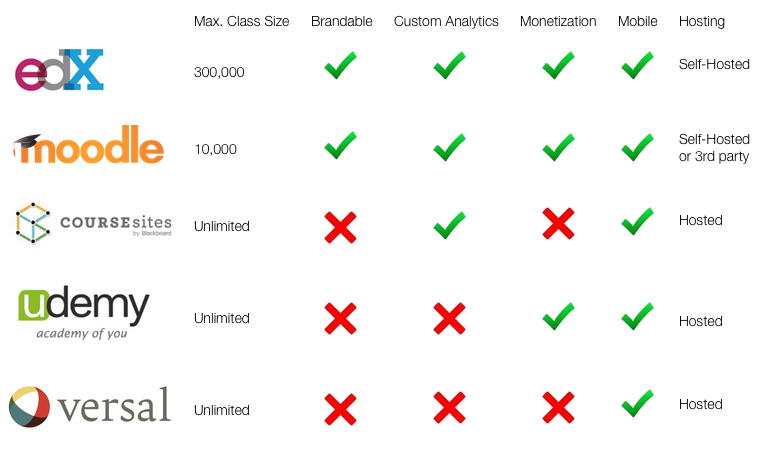A Complete Guide to MOOC Platforms: Learn at Your Own Pace
In the digital age, the traditional methods of education have evolved, and MOOCs (Massive Open Online Courses) have emerged as one of the most popular options for learning. These platforms offer free and paid courses from top universities and institutions worldwide, making education more accessible to everyone. Whether you’re looking to upskill, switch careers, or simply learn something new, MOOC platforms provide the tools you need.

What are MOOC Platforms?
MOOC platforms are online websites that offer massive open courses, accessible to anyone with an internet connection. These platforms typically feature a wide range of courses in subjects such as computer science, business, engineering, humanities, and more.
The key benefits of MOOCs are:
-
Accessibility: Students from all over the world can access courses without geographical or financial barriers.
-
Flexibility: You can learn at your own pace, fitting courses around your schedule.
-
Variety: Courses cover a vast range of subjects, allowing you to explore new areas of knowledge.
The Rise of MOOCs
The rise of MOOCs in the last decade has democratized learning. With technology, educational institutions have moved beyond the traditional classroom model and now offer online courses that are available to anyone, anywhere.
Some popular MOOC platforms include:
-
Coursera
-
edX
-
Udacity
-
FutureLearn
These platforms host courses from prestigious universities and companies, making top-tier education available to anyone willing to learn.

The Benefits of Using MOOC Platforms
1. Wide Range of Courses
MOOC platforms offer a diverse range of courses. Whether you want to learn data science, web development, or dive into philosophy, you can find a course tailored to your interests and career goals.
For example, Coursera offers courses from renowned universities like Stanford and Yale, while edX provides access to courses from Harvard, MIT, and other top-tier institutions.
2. Flexibility and Convenience
One of the biggest advantages of MOOCs is flexibility. Unlike traditional university courses, you can start learning a course anytime, anywhere. You have the option to go through lessons at your own pace, allowing you to balance your education with your personal and professional life.
Moreover, many courses are self-paced, meaning you can take the time you need to fully absorb the material. This makes MOOCs ideal for those who are working or have other commitments.
3. Affordable Learning
While some MOOCs charge for certificates or premium features, the majority of the courses are free to audit. This allows learners to access high-quality educational content without paying a dime. In cases where certificates are required, the prices are often much lower than traditional university tuition.
4. Networking Opportunities
Many MOOC platforms allow you to interact with fellow learners and instructors, creating opportunities for networking. You can participate in discussion forums, group projects, and even attend live sessions with professors and peers from across the globe.
5. Quality of Content
The quality of courses on MOOC platforms is often comparable to traditional university-level courses. These platforms partner with prestigious universities and industry leaders to provide top-notch content that is updated regularly.
You also have access to interactive quizzes, video lectures, peer assessments, and assignments, all designed to help reinforce your learning.
Popular MOOC Platforms to Explore
1. Coursera
Coursera offers an impressive selection of online courses, certifications, and degrees from leading universities and organizations. Whether you’re looking for a short course or a full-fledged degree, Coursera provides flexible learning options.
Courses range across various subjects, such as business, computer science, arts, and humanities. Some of the top universities partnered with Coursera include University of Michigan, Stanford, and Yale.
2. edX
edX is another popular MOOC platform, offering high-quality courses from institutions like Harvard, MIT, and UC Berkeley. Like Coursera, edX allows you to learn for free, with options to earn verified certificates for a fee.
You can find courses in subjects like engineering, data science, history, and more. edX is particularly well-known for its MicroMasters programs and professional certificates.
3. Udacity
Udacity is focused on providing technology-oriented courses that help learners gain practical skills. Their nanodegree programs are designed in collaboration with industry leaders like Google, Amazon, and IBM.
If you’re looking to break into fields like AI, data science, digital marketing, or software development, Udacity provides specialized programs that offer hands-on experience.
4. FutureLearn
FutureLearn is a UK-based MOOC platform that offers a wide variety of free courses. Many of these courses are short-term and focus on professional development and personal growth.
FutureLearn offers flexible learning, where you can access course materials at your convenience, allowing you to fit studying into your busy schedule.
5. Khan Academy
Khan Academy is a free educational platform that provides high-quality learning resources, especially for K-12 students. However, it also offers courses on subjects like math, science, history, and economics.
Khan Academy’s approach is to provide clear, concise lessons in short videos, which makes it ideal for learners who want to understand complex topics at their own pace.
How to Make the Most of MOOC Platforms
1. Set Clear Learning Goals
To maximize the benefit of MOOCs, it’s important to set clear, achievable goals. Decide what skills you want to learn and how much time you can dedicate each week to studying. Whether it’s learning a new programming language or gaining a business certification, having a defined goal will help you stay motivated.
2. Stay Consistent
Consistency is key when it comes to online learning. Even though MOOC platforms offer flexibility, it’s crucial to stay on track. Set a weekly schedule to watch lectures, complete assignments, and participate in discussions.
3. Engage in Discussions
Most MOOC platforms have discussion forums and group projects. Engaging with other learners can help you understand complex concepts and stay motivated. It also gives you an opportunity to network with others in your field.
4. Get Certified
While many MOOCs are free to audit, earning a certification can add value to your resume. A certification from a prestigious university or company can demonstrate your expertise in a specific area.
FAQs About MOOC Platforms
1. Are MOOCs really free?
Yes, most MOOCs are free to audit, meaning you can access the course material without paying. However, there might be a fee if you want to earn a certificate or access additional resources.
2. Can I get a degree from a MOOC platform?
Some MOOC platforms, like Coursera and edX, offer full degree programs in collaboration with universities. These are typically more expensive than individual courses but offer a legitimate qualification upon completion.
3. How do I stay motivated in an online course?
Staying motivated can be challenging in an online environment. Set specific goals, join discussion groups, and stick to a consistent study schedule to stay on track.
4. What’s the difference between MOOCs and traditional online courses?
MOOCs are typically free or lower cost than traditional online courses. They often have open enrollment and allow students from all over the world to join. Traditional online courses are often more structured and may require specific qualifications to enroll.
Conclusion
MOOC platforms offer a fantastic opportunity for anyone looking to expand their knowledge and skillset without breaking the bank. Whether you’re a student, a professional, or someone looking to explore a new field, these platforms provide flexible, accessible, and high-quality learning experiences.
Explore the world of MOOCs today, and start learning at your own pace. The future of education is here, and it’s just a click away!










